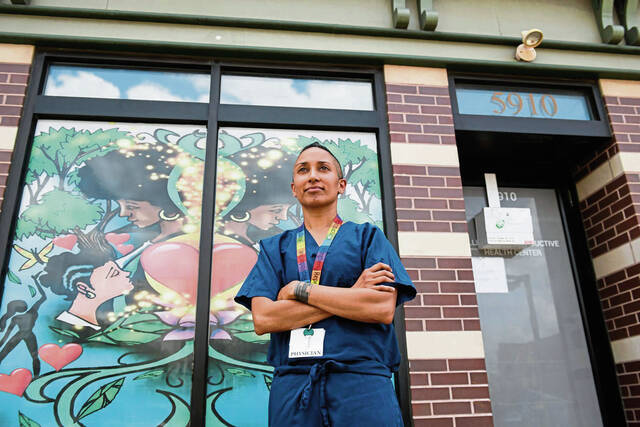July 31 was an important day for the Irish Center development project in Squirrel Hill, where a developer is trying to build 162 new condos on the former Irish Center site on Forward Avenue.
As a member of the board of the Squirrel Hill Urban Coalition (SHUC), I was one of 13 people in attendance at the public meeting tasked with an important job — deciding if our community wanted to welcome those 162 new homes, and the 200-plus residents who would become our neighbors. I was one of the only members who voted in favor.
I say this from a position of great privilege. I grew up in an upper-middle-class family in the suburbs and made Pittsburgh my home starting in 2004. I have never experienced housing insecurity, and I now live in one of the most desirable neighborhoods in our city — desired for its walkability, safety, transit, restaurants, jobs and more. But, unfortunately, while our neighborhood is very desirable, it’s increasingly unaffordable to many.
I think about my two friends, both teachers in the city, who want to live in the community but cannot afford to do so because of the housing shortage. This affects me personally because my life is less complete without them around, but it’s an even greater negative for families who don’t get to benefit from their teachers living in their community. Over the years, both of them have left the city for the suburbs in search of affordable homes in which they can raise their families.
Regularly, they both have expressed their desires to be back here. They desire the richness of the culture in the city, the diversity of people and opinions, the walkability — all of the things I have come to love about our community.
So how does the Irish Center fit into all of this? Simply put, there is a shortage of homes of all kinds in Pittsburgh, and that shortage ripples through the housing market and affects people of all backgrounds — from the cashier, to the teacher, to the lawyer. If you build 162 condos at the Irish Center, you’ll get a wide variety of people moving into them, but the vast majority are likely already residents of the city and even of Squirrel Hill.
For example, SHUC has noted that there are few options for empty-nesters in Squirrel Hill who want smaller homes while staying in the neighborhood. If they move into a new condo at the Irish Center, downsizing from their family-sized homes in Squirrel Hill, that could create opportunities for my friend to find a home for his family that wasn’t previously available.
Each time we choose to not build new housing — even market-rate homes like those proposed at the Irish Center — we are denying opportunities like this. If the zoning board denies this project, it’ll mean 162 fewer homes in a highly desirable and highly politically powerful neighborhood. This will also likely mean that more development will be focused in areas where it’s easier to build — poorer neighborhoods, with less political power — because they’ll complain less. And even if they did complain, their voices would not be heard. At the June SHUC meeting, one resident in attendance even suggested this — “Why can’t they build this in Wilkinsburg, instead?”
The people most likely to participate in the community engagement process are not broadly representative of the views of the community, but often represent the views of those who are most politically powerful — homeowners, who are whiter, richer and older than the general population — because they have both the time and resources to participate in these processes. The public process alone surrounding the Irish Center was about 10 hours of meetings at times when people might be caring for children or family members, working second jobs, or attending classes.
Pittsburgh’s “Registered Community Organization” system, which empowers groups like SHUC to act as a quasi-governmental voice of the community on issues of development, while good in its intention, grants more power to the already politically powerful people who have the time and resources to engage in the community process. With my vote in favor of the Irish Center, I decided that I must speak out for the teacher who can’t find housing, the parents who can’t give up weeknights caring for their kids and for the people who don’t have a voice but still want to be heard.
David Vatz is a housing advocate with Pro-Housing Pittsburgh.








